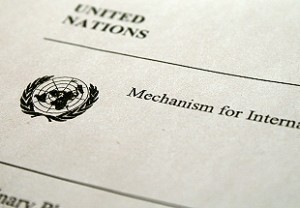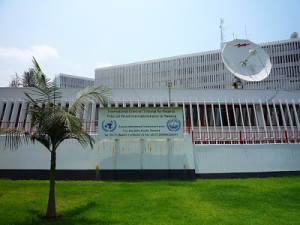 This week, the Mechanism for International Criminal Tribunals (MICT) launched its first online exhibition entitled “A Glimpse into the Archives”.
This week, the Mechanism for International Criminal Tribunals (MICT) launched its first online exhibition entitled “A Glimpse into the Archives”.
The purpose of this exhibition is to allow the general public to contextualize, access, and understand the value of the archives of the International Criminal Tribunals for Rwanda (ICTR) and for the former Yugoslavia (ICTY), which are now in the custody of the Mechanism.
The exhibition features a selection of interesting items to illustrate the diversity of the records in the archives. The items include photographs of artefacts used as evidence in court, drawings made by witnesses, and an extract from a historic trial judgement.
The exhibition aims to create an interactive experience. Each image has descriptive details and links to databases where other records can be found.
This exhibition is an opportunity to reflect on the many facets these records have: they document the judicial process while also depicting specific events that are part of larger contexts. The archives also help make tangible the complexity of the events that took place in Rwanda and in the former Yugoslavia.





